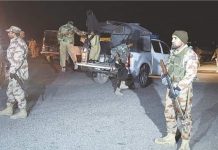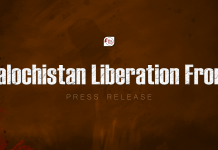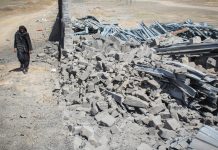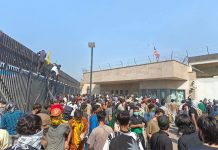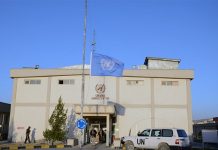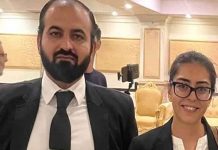Seventeen years have been completed since Ali Asghar Bangulzai went missing in 2001.
According to the details received by The Balochistan Post, the family of Ali Asghar Bangulzai held a press conference in the camp set up for Baloch Missing Persons near Quetta Press Club on Thursday.
In the press conference, Ali Asghar’s son said that today marks 17 years since his father went missing after he was picked up by security forces along with his friend Muhammad Iqbal in front of Degree College Saryab road, Quetta on 18th October 2001. Muhammad Iqbal was released after 22 days but his father never returned.
He told the media that his family is suffering due to mental and economic stress resulting from the abduction of his father.
Ali Asghar’s family have continued their peaceful protest alongside legal fight for the safe release of their father. Wherein, Muhammad Iqbal had also recorded his statement that Ali Asghar was detained by the security forces, they have provided all kinds of evidence in the legal courts.
Ali Asghar’s son said that in 2007 MNA Hafiz Hussain Ahmed had also recorded his statement in front of the court that Ali Asghar was detained by the government authorities. In 2010, he took an oath and recorded his statement in front of a commission assigned for missing persons, he told them that he had talked with Brigadier Siddique of Inter-Services Intelligence, who claimed that Ali Asghar is under their custody. A copy of that record was also submitted to Pakistani Supreme Court.
Ali Asghar’s son added that unfortunately they were never given justice even though they had provided solid proof in the court, but every time they hoped for something good, courts were pressurized by ‘higher powers’ to delay or complicate the case.
“They threaten all our witnesses but we will continue our struggle through all legal means,” he said.
Ali Asghar’s son appealed all the institutions to provide them justice, otherwise, they would be answerable in heavens because due to them his family has suffered for 17 years, and they still face economic and mental distress.











